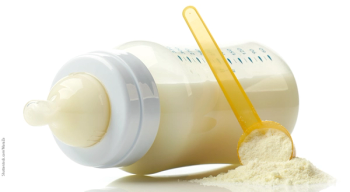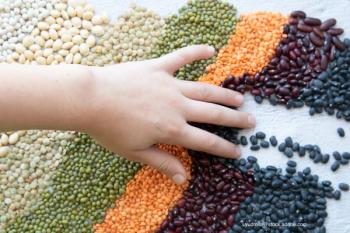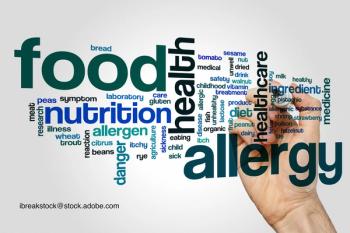
There are several indicators of malnutrition—even for children with normal growth.

There are several indicators of malnutrition—even for children with normal growth.

We know that the food habits a child is exposed to can have a lifelong impact on his or her diet. A study examines whether that impact includes the feeding habits from infancy.

Can probiotics help with atopic dermatitis risk? A meta-analysis offers some answers.

Though pacifiers are a comforting apparatus for many babies, they often pop out and land on the floor, requiring constant washing. A new report examines if there’s a link between pacifiers and how they’re cleaned after they hit the floor with the risk of food allergy.

Breastfeeding duration among New York City Latinx mothers by their birth region significantly varies, according to a recent analysis.

Robust secretion of SARS-CoV-2 specific IgA and IgG antibodies were found in breast milk of breastfeeding women for 6 weeks after the first of 2 vaccinations against COVID-19.

Processed foods have continued to be a big part of the everyday diet, even with research showing how unhealthy they are. A study examines how much processed food ends up in a child’s lunch and school snacks.

With the incidence of food allergies continuing to go up, understanding the diagnostic process and available treatment is important.

Breast milk is best, but for those babies who won’t or don’t breastfeed there are formula alternatives. Here’s a primer on infant formulas and how to decide which option is appropriate for the individual child.

The US Department of Agriculture (USDA) announced that the Pandemic Electronic Benefit Transfer, which provided nutrition to children that previously would have been offered by schools, would be extended to the summer months.

Becoming overweight at a young age can lead to long-term obesity and represents an important challenge to tackle in childhood. An investigation looks at the impact of a health literacy intervention on reducing overweight children.

When using therapeutic hypothermia for treatment, is feeding safe or does it lead to poor outcomes? A study offers answers.

An investigation looks into how the US diet has change since 2003.

A 19-year-old young woman presents with rapid onset weight loss. What's the diagnosis?

Plant-based proteins may be healthier for our bodies and the environment, but there’s not much guidance on these types of diets for children.

An investigation examines whether moving from paper vouchers to electronic benefits transfer (EBT) cards improved participation numbers for Special Supplemental Nutrition Program for Women, Infants, and Children (WIC).

An investigation examines which infants might require screening before peanut introduction.

Andrew J. Schuman, MD, FAAP, discusses talking with patients and their families about a variety of nutrition topics including eating disorders and obesity.

An investigation examines whether a key report on global health trends is hugely underestimating eating disorder cases.

Whether it’s getting a child to eat a certain vegetable, eat something other than chicken nuggets, most parents go through feeding struggles at some point. The question for pediatricians is knowing when to offer reassurance and support, and when to offer intervention.

A number of peanut allergy screening tests exist. Which is the best for infants who are high risk?

Contemporary Pediatrics sat down with Andrew J. Schuman, MD, FAAP, to discuss the many facets of pediatric nutrition.

The American Academy of Pediatrics (AAP) offers guidance on continuing obesity management during the current pandemic.

Emerging evidence reveals that earlier introduction of highly allergenic foods into infants’ diets may actually lead to immune tolerance. Here’s what you should know.

How changing seasons affect children’s nutrition.